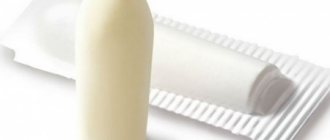In addition to lochia and pain, every third woman after childbirth suffers from flatulence. Often, gas formation is a physiological norm and goes away on its own. However, sometimes bloating and rumbling in the abdomen bother a woman in labor for several months. How to get rid of bloating, can nursing mothers take Espumisan and Linex?
Causes
The main causes of flatulence after childbirth can be:
- Displacement of the organs of the digestive system during pregnancy. After gestation, the organs gradually return to their place, resulting in swelling.
- Failure to follow the diet during feeding. The diet of a woman in labor should include liquid dishes, cereals, water, and juices. Then vegetables, boiled meat, eggs, crackers, biscuits, crackers, thermally treated bananas, carrots, beets, broccoli, and apples are added to them.
- Dysbacteriosis.
- Inflammation of the gastrointestinal tract.
- Intestinal obstruction.
- Parasites.
If you can really cope with proper nutrition on your own, then you won’t be able to do this with obstruction or inflammation. Therefore, you should put aside your embarrassment and go to the doctor.
Gas incontinence after childbirth is sometimes a sign of diseases such as dementia, catatonic syndrome, epilepsy.
Gases and fecal incontinence after childbirth: causes and methods of treatment
The birth of a long-awaited baby is always accompanied by great joy of parents and relatives. However, after pregnancy, mothers may face more than just the joy of childbirth. Often they experience not entirely pleasant changes in the body, which are accompanied by certain health problems, such as gas and incontinence.
One of the most common problems of young mothers is increased gas formation in the intestines. Due to the sensitivity of the problem, many women do not consult a doctor about this and try to get rid of the inconvenience on their own. However, if you are breastfeeding, and three months after giving birth you notice that you fart too often and this is accompanied by incontinence, rumbling in the stomach, pain and bloating, it is better to make an appointment with a gastroenterologist. A specialist will find out the cause of increased gas formation and create an individual treatment plan for you that will not harm your baby.
What causes flatulence?
- Most often, increased gas formation is associated with the diet of a young mother. In order to avoid flatulence, it is necessary to adjust the menu and eat only those foods that do not cause gas formation.
- The following foods can cause flatulence: black bread, white cabbage, beans, milk. In addition, increased formation of gases can be caused by a combination of certain incompatible foods. For example, products that contain starch and protein are incompatible. That is, you should not serve potatoes or pasta with meat; it is better to use neutral vegetables, such as broccoli, as a side dish. Also, after giving birth, avoid eating exotic foods; it will be easier for your intestines to cope with familiar foods. Pay attention to your diet. You need to eat food 5-6 times a day, in small portions at the same time. If you are not sure about the correctness of the menu you have compiled, seek advice from a nutrition specialist who will give the necessary recommendations on your diet during breastfeeding.
- Another cause of flatulence after childbirth is the displacement of a woman’s internal organs. As you know, the growing uterus displaces all the woman’s organs, including the intestines. After childbirth, the organs need time to return to their original places, and during this time the intestines and other organs may work with some malfunctions. To more quickly restore the functions of internal organs, you need to perform special gymnastics, which your doctor may prescribe to you.
Diseases of the gastrointestinal tract in which flatulence is observed
- Inflammatory processes of the gastrointestinal tract
- Inflammatory diseases of the abdominal organs
- Dysbacteriosis
- Intestinal obstruction
- Acute intestinal infections
- Intestinal parasites
- Nervous disorders
If you suspect the presence of these diseases, immediately seek help from a specialist.
Nutrition in the postpartum period
Due to the fact that the intestines of a pregnant woman shrink significantly in the last months of bearing the baby, it takes time and a special diet to restore its normal functioning. The mother's diet should be as gentle as possible. Soups, broths, still water, juices - these are the foods that should be consumed in the first days after childbirth. Gradually, it is necessary to include porridge, boiled meat, eggs and vegetables in the diet. At this stage of recovery, you need to exclude bread and bakery products from the diet; they can be replaced with crackers and dry biscuits.
The right foods for a young mother include: fermented milk products, boiled meat, zucchini, thermally processed carrots, pumpkin, beets, broccoli, bananas.
Flatulence and caesarean section
Caesarean section has a more detrimental effect on bowel function than vaginal birth. The reason for this is the introduction during surgery of special drugs that block the functioning of the gastrointestinal tract. Later, the woman is given another drug that restores intestinal activity, but during the recovery process, bloating and gas formation can often occur. An important point for preventing problems with the gastrointestinal tract in the postoperative period is early physical activity. As soon as the anesthesia wears off, the woman must get up and walk. This will help restore normal functioning of internal organs as soon as possible.
When to see a doctor
A visit to a specialist should not be delayed if several months have already passed after giving birth, and dietary restrictions do not bring the desired result. In this case, often the cause of gas formation is the development of dysbacteriosis. This disease is easily treated with modern medications. Remember! There is no need to self-medicate, because taking medications not prescribed by a specialist can have a detrimental effect on the baby’s health. Treatment should be prescribed only by a doctor who will select an individual, most gentle treatment schedule for you.
After cesarean
Giving birth to a child through surgery has a negative impact on health. During the operation, the woman in labor is given special drugs that stop the gastrointestinal tract. After the baby is removed, medications are again administered to start the gastrointestinal tract. As a result of these manipulations, increased gas formation occurs after childbirth.
To speed up the recovery process, a woman must get up and walk immediately after giving birth (after the anesthesia wears off). This will help stabilize the activity of internal organs.
Treatment of dyspepsia in a nursing mother
When the body's mechanism for digesting food is disrupted, the result is always the same - indigestion.
Fertile ground for the development of dyspepsia can be pathological inflammatory processes in the organs of the digestive system, unbridled appetite, expressed by regular overeating, and eating foods that are heavy for the stomach.
A standard “set” of digestive problems: heaviness in the stomach, bloating and abdominal pain, belching, constipation that alternates with loose stools, general weakness accompanied by mild nausea.
Digestive problems in a nursing mother
One can only sympathize with a sick woman with a breastfed baby: she has the same problems as other people, but many medications are contraindicated for her. Many by no means harmless components of medications easily pass into mother’s milk, and then, accordingly, into the child’s body.
Therefore, before taking any pill, a nursing woman should consult a doctor. Only a specialist can advise what medications a mother can take during lactation.
Let's look at the most common causes of discomfort in the abdomen and stomach in particular, and also find out what medications doctors usually prescribe to women who are breastfeeding.
Enzyme deficiency
The proper functioning of the gastrointestinal tract is ensured by certain enzymes produced by the pancreas. When they are deficient in the body, the most important processes of digestion and absorption fail. To normalize the patient’s condition, a gastroenterologist may prescribe the following medications:
- Pancreatin (analogue of Creon 10000). The enzymes amylase, lipase, and proteases contained in the drug break down proteins, fats and carbohydrates, providing a lasting therapeutic effect.
- Digestal, Festal, Panzinorm Forte. These drugs are necessary when enzyme deficiency negatively affects the functioning of the liver and biliary tract.
- Mezim Forte is the “mildest” drug that corrects the insufficient formation of enzymes in the pancreas. It can be taken even by pregnant women and young children.
Heartburn
A severe burning sensation behind the sternum, which spreads like fire all the way to the throat, appears when the contents of the stomach enter the esophagus. As a result, the level of acidity increases, the reduction of which is ensured by non-absorbable drugs, neutralizing the effect of hydrochloric acid. A nursing mother can safely take a tablet of Maalox, Phosphalugel or Almagel.
Flatulence
This unpleasant condition occurs when the resulting gases are not completely absorbed by the intestines. Excessive gas formation can also be caused by potatoes, milk, vegetables and brown bread.
Severe abdominal pain that goes away after the gas passes is the most striking symptom of flatulence.
Traditional medicine advises in such cases to save yourself with infusions of caraway seeds, chamomile flowers or dill oil.
These products can be combined with drugs that contain simethicone: Espumisan, Sab Simplex. They relieve spasm of intestinal smooth muscles and at the same time stimulate intestinal motility.
Constipation
Constipation entails serious intoxication of the body, the source of which is feces that do not leave the intestines in time. A nursing mother may experience headaches, loss of appetite, nagging pain in the lower abdomen, and insomnia.
You can fight constipation using natural remedies: buckthorn bark, castor oil, hay leaves, seaweed, bran. At the pharmacy you can buy herbal preparations - Regulax or Mucofalk.
The effect of taking the medication will occur within 12 to 24 hours.
Dysbacteriosis
Violation of the composition of the natural microflora in the intestines primarily affects the body's absorption of nutrients, upsets digestion and stimulates the development of pathogenic bacteria. A nursing woman's immunity decreases and she is susceptible to various types of infections. In this case, an effective medicine, Bifidumbacterin Forte, is prescribed, which quickly restores the microflora.
Liver dysfunction
Inflammatory processes in the liver and gallbladder disrupt the production of bile and change its composition. As a result, a person becomes a victim of the so-called dyspeptic syndrome - he suffers from heartburn, belching, and often feels sick.
For women who are breastfeeding, the doctor may recommend gentle treatment with tansy flowers, immortelle, and corn silk. Decoctions and infusions from these plants stimulate the production of bile and make it less viscous.
The secretion of bile into the intestines is also improved under the influence of magnesium sulfate, or Magnesia.
Stomach ulcer
Ulceration of the gastric mucosa is one of the most serious pathologies of the gastrointestinal tract. How can you relieve stomach pain in a nursing mother? In treatment, drugs that protect the gastric mucosa from the aggressive effects of hydrochloric acid are relevant: Sucralfate, Misoprostol. They are absolutely safe during lactation.
The peculiarities of the gastrointestinal tract sometimes cause us some inconvenience. Nursing mothers need to be especially vigilant so as not to inadvertently harm the health of their baby. Therefore, you should definitely discuss all your thoughts about treating a particular problem with your doctor.
Source: https://strana-sovetov.com/health/10996-lechenie-dispepsii-u-kormjashhej-mamy.html
Dysbacteriosis
An imbalance of beneficial and harmful microorganisms in the intestines is called dysbiosis. This is not a disease, but a consequence arising from other pathological changes. It can provoke increased gas formation after childbirth.
Read also: Why does the tailbone and lower back hurt in women after childbirth? What to do?
The first signs of dysbiosis are constipation or diarrhea. May also occur:
- vomit;
- nausea;
- pain in the lower abdomen;
- feeling of incomplete emptying.
The symptoms are identical to many intestinal diseases. To be sure that it is dysbacteriosis, you need to undergo bacteriological and biochemical analysis.
Most often it occurs in women giving birth after a cesarean section, since antibiotics are often prescribed that disrupt the microflora of the gastrointestinal tract.
As a result, the digestive organ does not cope well with its functions and does not absorb useful substances, which entails a decrease in the protective properties of the body. Due to a weakened immune system, the postoperative recovery period and the risk of contracting an infection increase.
Symptoms of pathology
Flatulence is quite easy to distinguish from other diseases. The main symptoms of excessive gas accumulation include the presence of:
- cramps in the abdominal area, which resemble painful sensations during menstruation - one of the main signs of flatulence;
- spasms concentrated on the lower right;
- bloating and increased abdominal volume;
- frequent release of gases (increased flatulence);
- age-related physiological changes (menopause);
- rumbling in the stomach;
- belching;
- constipation;
- malignant or benign tumor;
- diarrhea.
In addition, signs such as a feeling of weakness, general malaise, lack of appetite and systematic headaches may be observed.
How to get rid
Many women refuse therapy because they are still breastfeeding. In modern medicine, there are many medications that are harmless to infants. In most cases, probiotics are prescribed.
During lactation, with increased gas formation, you can take the following medications:
- Activated carbon, which absorbs toxins.
- Medicines based on lignin, for example, Entegnin, Polyphepan and others.
- Simenicone or Espumisan is an antifoaming drug that breaks accumulated gases into small parts. As a result, they are absorbed into the tissue or released to the outside.
- Antispasmodics, for example, drotoverine. They relieve spasms and help get rid of gas formation. But during breastfeeding they are used strictly as prescribed by the doctor.
Traditional medicine can also help a woman. Fennel tea can cure gas incontinence after childbirth. This plant will not only relieve inconvenience, but also improve lactation. Dill and mint decoction have a positive effect on the intestines.
Traditional medicine for bloating and gas formation
For constant bloating and excessive gas formation, traditional methods of treatment are often used. So, ginger will help reduce excessive gas formation and improve appetite. You should grind the ginger root to a powder and take it three times a day after meals, 20 g, with 100 ml of water.
Potato juice helps get rid of stomach discomfort. It should be taken 100 ml on an empty stomach in the morning, after which it is recommended to lie down for about half an hour. The duration of such treatment is 8-10 days, after which a break is taken for a week. After the break, you can repeat the course.
Another effective method for eliminating stomach problems is a soda solution. 20 g of soda are diluted in a glass of boiled water and taken 15 minutes before meals 1-3 times a day.
Infusions for flatulence at home
Taking an infusion of chamomile, mint, caraway and anise flowers will help stop increased gas emission. To do this, all ingredients are mixed in equal proportions in a clay container. 30 g of dry herbal mixture is poured into 250 ml of boiling water and left for 15 minutes. This infusion is taken 100 ml every 2 hours.
Dill infusion helps to cope with gas separation. To prepare it, you need to pour 25 g of crushed seeds into 300 ml of boiling water, leave the mixture for 30 minutes, then strain. The finished infusion is taken 100 ml 2 hours before meals three times a day.
You can treat bloating with an infusion of medicinal herbs such as lavender, mint and licorice root. All components are mixed in 5 g doses, poured boiling water into a thermos, after which the infusion is drunk in 50 ml doses throughout the day.
An infusion of medicinal dandelion roots helps fight bloating and gas. To prepare it, pour 30 g of crushed roots into a glass of cool water and leave for 50 minutes. You should drink the infusion 4 times a day before meals, 50 ml.
When treating excessive gas formation, an infusion of sweet clover works great. 25 g of dry herb is poured into 250 ml of water at room temperature, left for 2 hours, filtered and taken 35 ml three times a day.
The use of decoctions for bloating and gas formation
A decoction of coriander, cumin and fennel helps remove excess gases from the body and feel light. To do this, mix 30g of coriander and 20g of cumin and fennel, add 300 ml of water and bring to a boil. The finished decoction should be taken twice a day, 200 ml.
Chamomile decoction is popular for flatulence, relieving cramps in the stomach and restoring the functioning of the gastrointestinal tract. To prepare it, pour 25 g of chamomile flowers into 250 ml of boiling water and leave for 15 minutes, then strain. The finished decoction is taken 100 ml half an hour before meals, until the discomfort in the stomach disappears.
Another effective remedy is a decoction of elecampane. To prepare a decoction, you need to pour 20 g of rhizomes into 1 liter of water and leave for an hour. It is recommended to drink the strained decoction during the day for flatulence.
Video on the topic:
Postpartum diet
During breastfeeding, you should follow a special diet that will help the body recover. Failure to maintain proper nutrition is a source of health problems not only for the mother, but also for the child. An incorrect diet causes severe flatulence and bloating in the baby, since the consumption of certain foods causes fermentation and gas formation.
Read also: How to properly develop the thoracic ducts (glands) after childbirth?
Mom should not have in her diet:
- potatoes;
- radish;
- radishes;
- cabbage;
- beans;
- bananas;
- flour products;
- milk;
- soda;
- candies and sweets;
- mushrooms;
- grapes
These products are difficult for the body to digest and can be a source of pathology. To reduce the release of gases in women after childbirth, some food can be replaced, for example, instead of milk, you can drink fermented milk products.
Rice, muesli, pumpkin porridge, pepper, and fennel tea help reduce the formation of gases.
Should I run to the hospital?
As you can see, it is undesirable to delay visiting a doctor, especially if several months have passed since pregnancy, the mother adheres to proper nutrition, and the problem does not go away. She should consult a doctor, perhaps the reason is much more serious. You should definitely contact a therapist or gastroenterologist, who will prescribe an examination in the form of an ultrasound and tests.
If the intestinal microflora is disturbed, drug treatment is prescribed, taking into account the fact that the patient is breastfeeding. Medicines such as Linex, Hilak Forte, Smecta are prescribed to restore intestinal function. These drugs are safe for both mother and baby.
It is necessary to go to the hospital if the recovery period is already over, and the bloating increases or does not go away, or if other symptoms have been added, such as pain or vomiting.
More on the topic “What causes your stomach to swell”:
The question is tormenting me
Girls, what can cause gas and bloating in us and what can we do to save ourselves? The last 3 days I’ve been like a balloon:((darkness...
I really like cabbage, but...
My stomach swells very often, it’s just hard to live. because I seemed to be aiming at cauliflower, but I read somewhere that it makes you bloat and so on with everything - it seems that it’s possible (not cauliflower, not citrus fruits. True, I gave up milk completely, but I drank kefir and didn’t know what it makes me swell...
Bloated belly
Do not try to treat abdominal pain with enemas or laxatives unless you are sure of the cause. heartburn, stomach discomfort, bloating or flatulence are disturbing...










